Choosing the right ERP (Enterprise Resource Planning) system is one of the most important decisions your business can make. The right ERP helps streamline operations, reduces manual work, and provides real-time insights, but the wrong one can cost your business thousands of ringgit and valuable time.
This guide will help Malaysian business owners understand how to choose an ERP and why Conzlab ERP stands out from other options in the market.
Why Choosing the Right ERP Matters
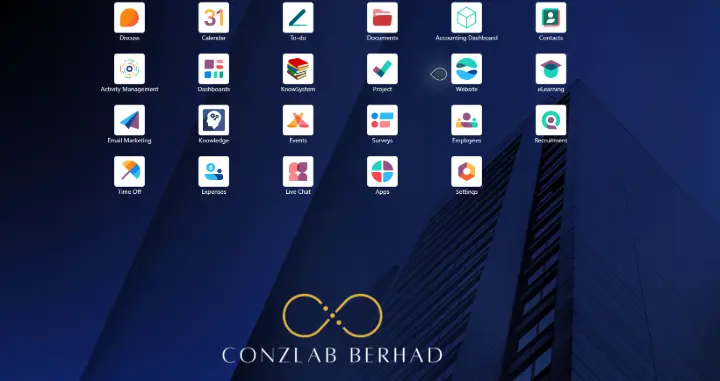
Many businesses in Malaysia still rely on spreadsheets, disconnected software, and manual processes, which can lead to:
- Data silos and errors
- Wasted time in reporting
- Inefficient workflows across departments
An effective ERP system can:
- Automate manual tasks, reducing reliance on spreadsheets
- Improve operational efficiency, providing real-time data across finance, inventory, HR, and sales
- Enhance reporting and compliance, ensuring accurate financial and regulatory reporting in Malaysia
- Scale with your business, allowing growth without switching platforms
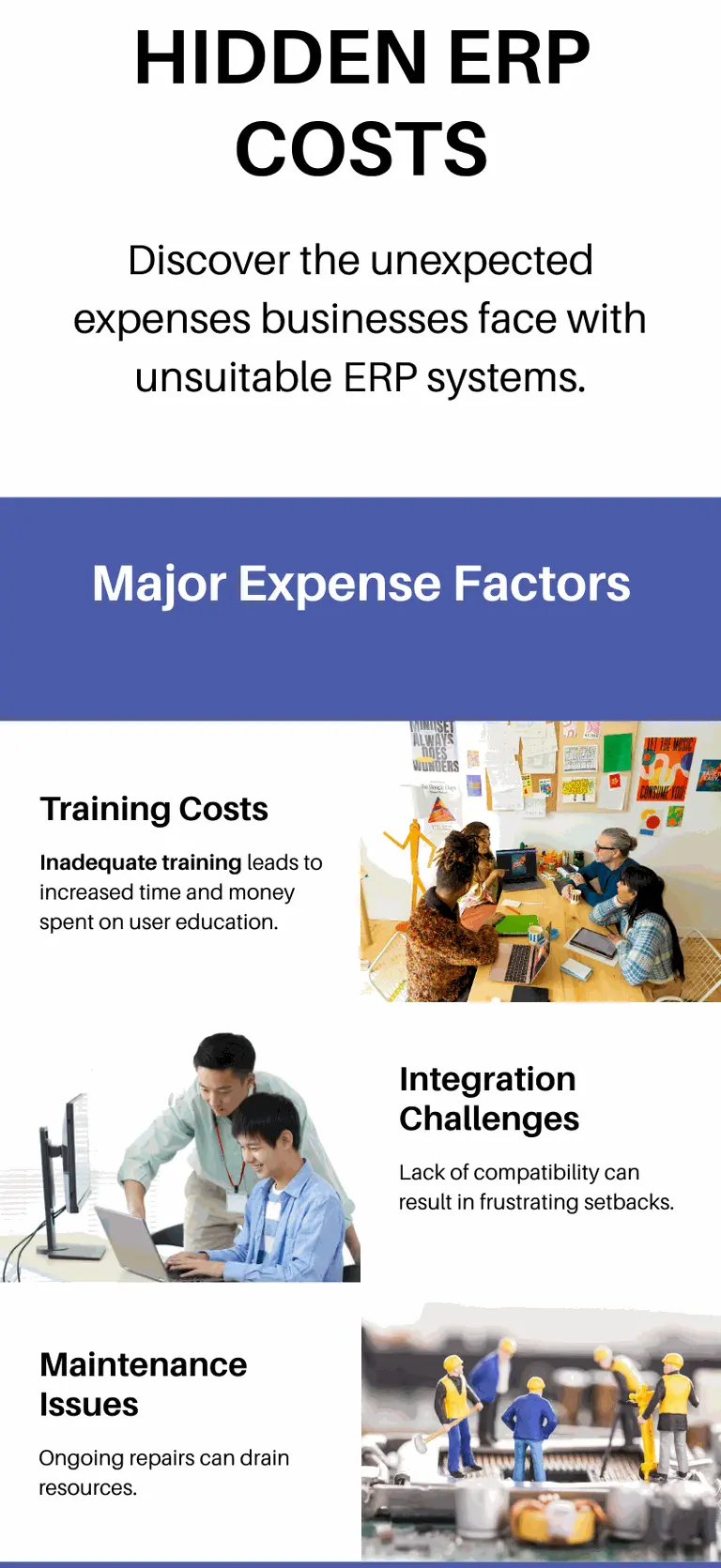
Costs of Choosing the Wrong ERP
Many businesses select ERP systems without proper research, which leads to:
- Budget overruns from hidden implementation, customisation, and maintenance costs
- Operational disruptions if the ERP does not integrate with existing systems
- Low adoption rates, as employees struggle with complex interfaces
- Scalability issues, limiting growth
💡 Tip: Don’t choose an ERP based on price alone. Consider long-term ROI, including efficiency gains and saved manpower.
Key Factors to Consider When Choosing an ERP
1. Understand Your Business Needs
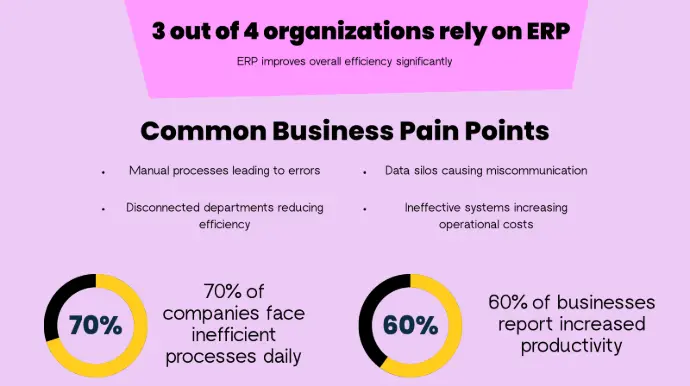
Ask:
- Which departments need integration first?
- Are you facing manual process challenges or data silos?
- Do you need industry-specific functionalities (retail, manufacturing, services)?
Defining your goals ensures you pick an ERP tailored to your business.
2. SaaS vs On-Premises ERP
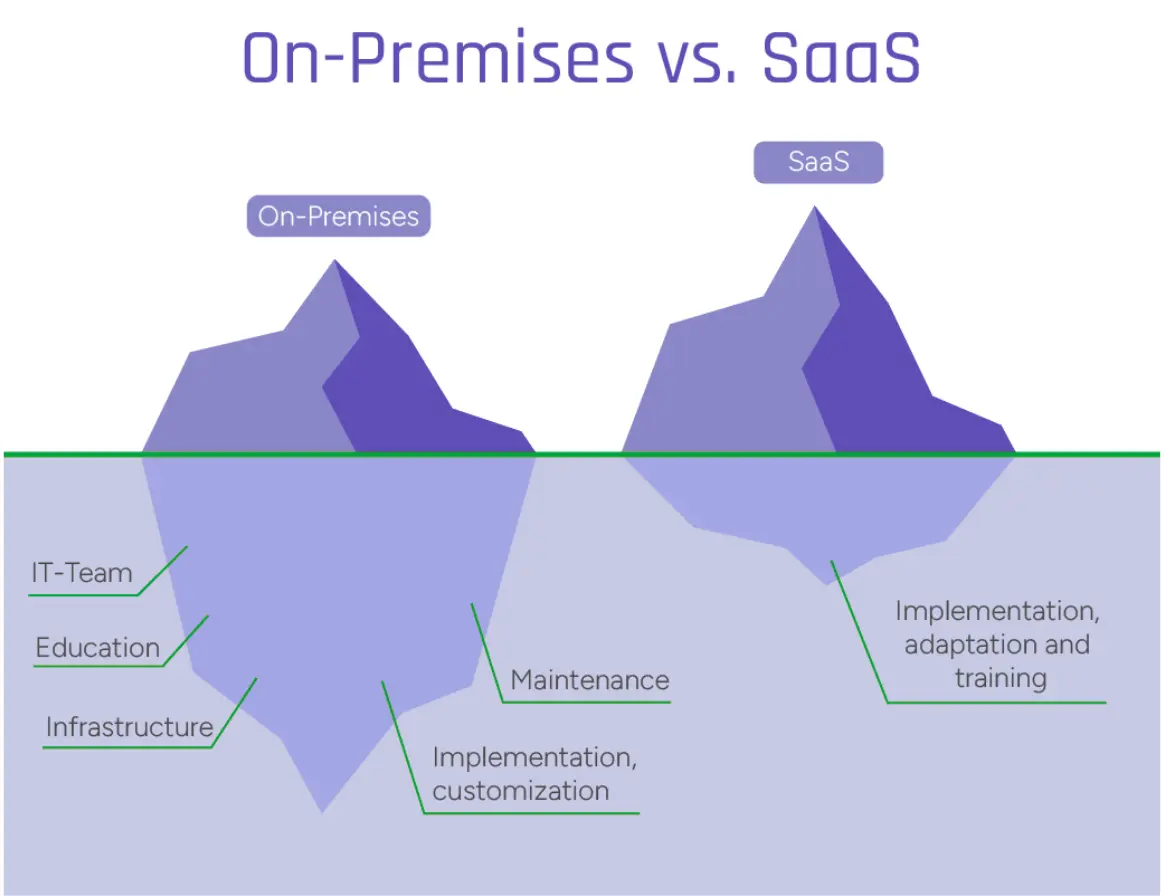
- On-Premises ERP: Installed on your servers, more control, higher upfront costs
- SaaS (Cloud-based) ERP: Hosted by the vendor, accessible anywhere, faster deployment, lower IT costs
- Hybrid ERP: Combination of both
For most Malaysian SMEs, SaaS ERP offers cost savings, easy updates, and scalability.
3. Upper-Management & End-User Support

ERP is a company-wide change. Successful implementation needs:
- Executive buy-in: Helps secure budget and align stakeholders
- End-user adoption: Employees must be able to navigate the system easily
- Training programs: Onboarding and continuous support
4. Scalability & Integration
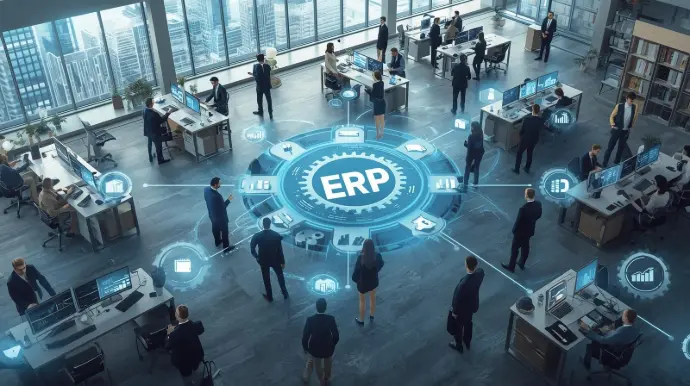
- Can the ERP grow with your business?
- Can it integrate with existing systems like accounting, e-commerce, or POS software?
- Does it provide continuous updates and compliance features?
Scalable ERP prevents future disruptions and costly system replacements.
5. Cost Considerations
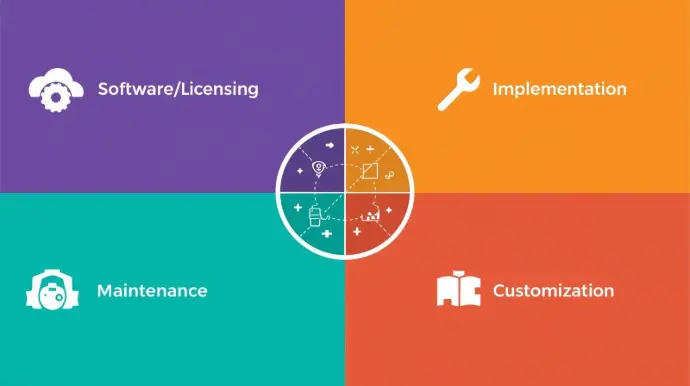
- Licenses (SaaS or on-premises)
- Implementation, customisation, and training
- Ongoing maintenance and upgrades
💡 Tip: Consider total cost of ownership over 5–10 years, not just upfront cost.
Why Conzlab ERP Stands Out
Many ERP solutions exist in Malaysia, but Conzlab ERP has unique advantages:
- Odoo-based with full customisation – Start small, scale up modules gradually to suit your workflow
- Local Malaysian support – Compliance with LHDN, payroll laws, and GST/SST reporting
- User-friendly interface – Intuitive dashboards for finance, HR, inventory, and sales
- Affordable SaaS pricing – Transparent pricing, no hidden fees
- Proven track record – Over 1,000 Malaysian businesses trust Conzlab ERP for smoother operations
Choosing the right ERP in Malaysia isn’t just about software—it’s about partnering with a vendor who understands your business, supports growth, and provides local expertise.
Conzlab ERP combines Odoo’s flexibility, SaaS convenience, and local compliance knowledge, helping Malaysian businesses automate processes, increase productivity, and scale confidently.
How to Choose the Right ERP Vendor for Your Malaysian Business